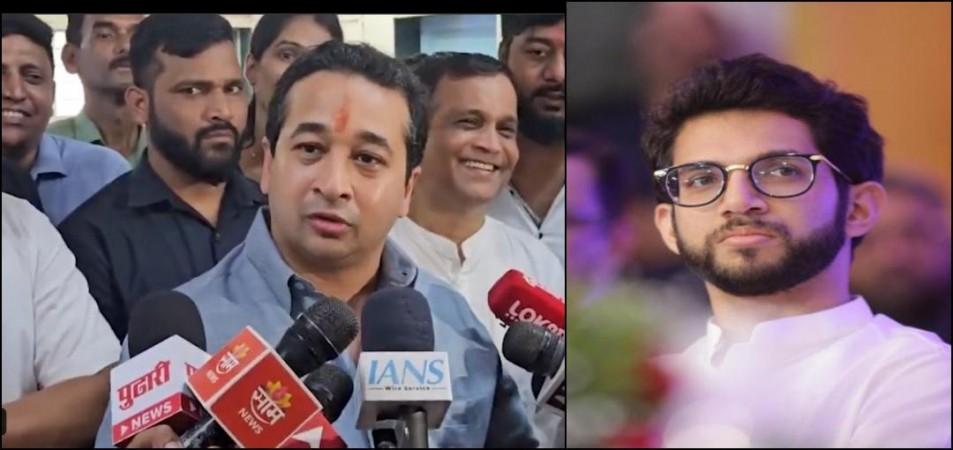
The upcoming India-Pakistan Asia Cup cricket match in Dubai has ignited a political firestorm, with BJP Minister Nitesh Rane launching a scathing attack on Shiv Sena (UBT) leader Aaditya Thackeray. Rane, known for his provocative remarks, mocked Thackeray by suggesting he would watch the match in disguise. "Aaditya Thackeray himself will watch the India-Pakistan match tomorrow hiding in a burqa. He will also shout slogans of Pakistan Zindabad," Rane quipped, even mimicking Thackeray's voice to emphasize his point. This comment has added fuel to an already heated debate over the match.
Aaditya Thackeray had earlier criticized the Board of Control for Cricket in India (BCCI) for its decision to proceed with the match, labeling the cricketing body as "anti-national." He questioned the motives behind the BCCI's eagerness to play against Pakistan, suggesting financial incentives might be at play. "The BCCI is becoming anti-national. Why is the BCCI so excited about playing with Pakistan? Is it because of greed for money, TV revenue, advertisement revenue, or is it for the fees of players?" Thackeray asked, highlighting the contentious nature of the decision.
The controversy has been further intensified by Uddhav Thackeray, the Shiv Sena (UBT) chief, who criticized the Modi government for allowing the match to proceed despite the recent Pahalgam terror attack. "The wounds of Pahalgam have not healed, and yet this government is ready to play cricket with the same Pakistan that spreads terror in our country," Uddhav Thackeray stated. He accused the government of hypocrisy, quoting Prime Minister Narendra Modi's own words that "blood and water cannot flow together," and questioned how "war and sport can go hand in hand."
Mumbai, Maharashtra: On Shiv Sena (UBT) MLA Aaditya Thackeray's statement regarding the India-Pakistan Asia Cup match, Minister Nitesh Rane says, "The same Aaditya Thackeray will secretly watch the India–Pakistan match, wearing a burqa. And the advantage will be that the voice… pic.twitter.com/t6rxmZBapj
— IANS (@ians_india) September 13, 2025
Political and Public Reactions
The political slugfest has sharpened focus on whether India should engage in sporting ties with Pakistan. Several opposition parties, former cricketers, and public figures have urged the Indian team to boycott the Asia Cup fixture. India and Pakistan have not played a bilateral series since 2012-13, meeting only in multi-nation tournaments, which adds another layer of complexity to the current situation. The debate over the match is not new, as sporting events between the two nations have often been marred by political tensions.
Maharashtra Congress spokesperson Sachin Sawant also weighed in, describing the decision to allow the match as a diplomatic failure and an insult to the families of those killed in the Pahalgam terror attack, as well as to soldiers who have been martyred in the line of duty. "Allowing the game to go ahead is a diplomatic failure and an insult to the kin of those killed in the Pahalgam terror attack and soldiers who have been martyred in the line of duty," Sawant told PTI. This sentiment reflects the broader public outcry against the match.
In response to the criticism, Maharashtra minister and cricket administrator Ashish Shelar defended the decision, asserting that bilateral political stand-offs should not dictate international sporting events. "Global sporting events should remain neutral and not be held hostage by political tensions," Shelar said. He emphasized that the BCCI's decision was in line with maintaining the integrity of international sports, which should transcend political disputes. This perspective highlights the ongoing debate over the role of sports in international relations.








